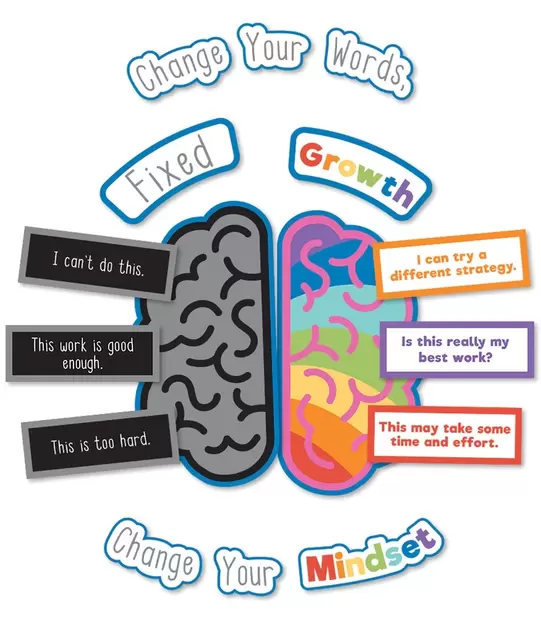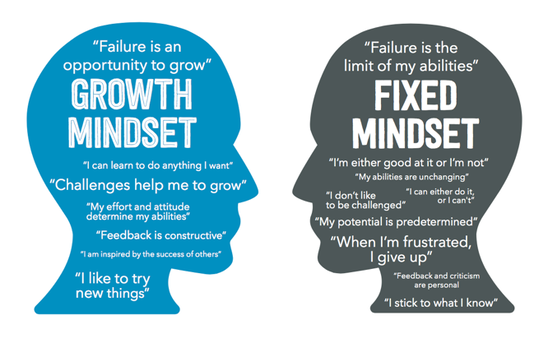G R O W T H M I N D S E T S I N M A T H E M A T I C S

"In a growth mindset, challenges are exciting rather than threatening. So rather than thinking, oh, I'm going to reveal my weaknesses, you say, wow, here's a chance to grow."
- Carol S. Dweck -
"In a growth mindset, challenges are exciting rather than threatening. So rather than thinking, oh, I'm going to reveal my weaknesses, you say, wow, here's a chance to grow."
- Carol S. Dweck -
|
Fixed vs. Growth Mindset
Fixed Mindset:
Someone is said to have a fixed mindset when she/he assumes that the ability or intelligence an individual has is something that cannot be changed. Many times, individuals who have a fixed mindset about ability or intelligence believe you either "have it or you don't" in regard to abilities, skills or understandings. Growth Mindset:
|
|
Why is it Important to Teach our Students to Have a Growth Mindset? |
Why is Having a Growth Mindset Important in Mathematics? |
How Can Educators Develop Growth Mindsets within our Students? |
|
If student's have a growth mindset, they will believe that with hard work they will be able to achieve! Students' mindsets will affect how they approach challenges in school and how they perceive these challenges.
When student's have a fixed mindset, they might view school as threatening because of the many challenges it presents for them. They might also give up when they are faced with setbacks or challenges rather than persist and respond to adversity. If we help our students develop a growth mindset they will instead view challenges as a way to optimize their learning potential and be more willing to take risks or engage in challenging tasks which they will see as an opportunity to grow. mindsetscholarsnetwork.org/learning-mindsets/growth-mindset/# |
The research by Jo Boaler tells us that a growth mindset in mathematics is important for several reasons:
|
|
Click below to download an infographic on teacher best practices for growth mindset!
| teacher-practice-infographic.pdf | |
| File Size: | 1549 kb |
| File Type: | |
